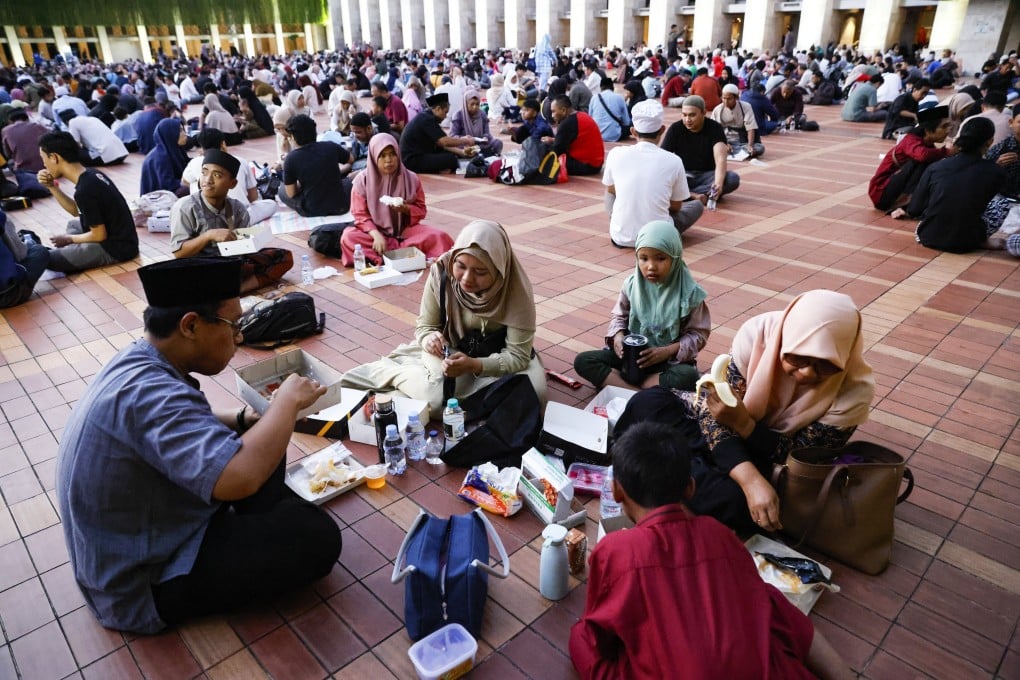Job losses, rising food prices threaten Indonesians’ Ramadan spending spree
Eid-related incentives may not be enough to boost people’s purchasing power amid the economic slowdown, analysts warn

Southeast Asia’s biggest economy typically sees a surge in consumer spending during Ramadan and the Eid ul-Fitr holiday – which marks the end of the Muslim holy month – due to traditions such as gatherings to break fast with friends and family at restaurants and buying new clothes to wear while visiting hometowns.
In 2024, Indonesia’s economic turnover during the Eid holiday was estimated at 369.8 trillion rupiah (US$22.4 billion), according to the Tourism and Creative Economy Ministry.
Food staples such as eggs, shallots, cooking oil and rice have seen significant increases ahead of Ramadan. On Monday, Trade Minister Budi Santoso revealed in a hearing with lawmakers that the price of red chillies had increased by 23.23 per cent to 81,700 rupiah (US$4.96) per kilogram, which he chalked up to “reduced supply due to heavy rainfall this month”.

Higher prices have left consumers and food sellers feeling the pinch.